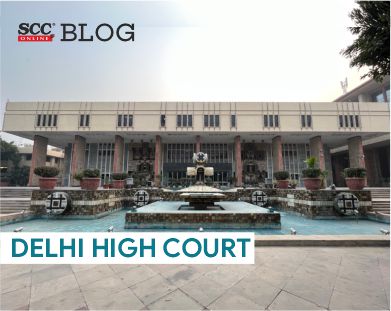Delhi High Court: In a case wherein Public Interest Litigation (PIL) was filed by the toy manufacturers stating that they should be permitted to sell their toys which they had imported from manufacturer before 2021 and the
Background
The petitioner filed the present petition as a PIL stating that Association members were importing toys manufactured from foreign countries and had imported many toys before 2021. However, on account of a notification dated 25-2-2020, issued by the Ministry of Commerce and Industries, they were not able to sell their toys as by the notification it had been made mandatory that the toys imported by importer should confirm the standard laid down under BIS (Conformity Regulations), 2018 (“2018 Regulations”), and the toys so imported should qualify the parameters laid down under the quality control orders which had come into force with effect from 01.09.2020.
The petitioner prayed that they should be permitted to sell their toys which they had imported from manufacturer before 2021 and the notification dated 25-2-2020 should not come their way. The petitioner also prayed for compensation for stocks imported or manufactured before 2021. The respondents submitted that sub-standard toys were being imported in the country, and there were many Labs available for obtaining desired certificate there.
It was submitted that the toys which were being imported, were found to be sub-standard toys and Quality Council of India (QCI) submitted a detailed and exhaustive report in respect of toys available in the market. Thereafter, the foreign trade policy for importing toys had been made stringent through the revised notification dated 2-12-2019, and after consultation with stakeholders, a notification was issued on 25-2-2020 and six months’ time was granted to all stakeholders to be prepared with the date of implementation fixed as 1-9-2020.
The respondents submitted that this action was to promote domestic industry under the Nation Action Plan for toys and to ensure that sub-standard toys were not imported as they contain toxic material.
Analysis, Law, and Decision
The Court noted that to ensure that sub-standard toys with toxic substances were not sold in the market, a notification had been issued by the Government of India in exercise of powers conferred under the
The Court opined that the documents on record revealed that the impugned notification issued by the Government of India was, in fact, in larger public interest, and the present Writ Petition was not a PIL but personal interest litigation of certain toy manufacturers. Under the garb of PIL, the toy manufacturers wanted to import sub-standard toys in the country, and by no stretch of imagination they could be permitted to violate the norms fixed by the Government of India under the
The Court further noted that the
The Court relied on Tehseen Poonawalla v. Union of India, (2018) 6 SCC 72, wherein the Supreme Court held that “the misuse of public interest litigation was a serious matter of concern for the judicial process. Both this Court and the High Courts are flooded with litigations and are burdened by arrears. Frivolous or motivated petitions, invoking the public interest detract from the time and attention which courts must devote to genuine causes ”. The Court opined that the present PIL was filed at the behest of traders of toys/manufacturers of toys, who wanted to avoid compliance with the
The Court further opined that the
Therefore, the Court dismissed the petitions and held that the present PIL was nothing but frivolous a PIL. Therefore, the Court did not find any reason to interfere with the
[Forever Toy Traders Association v. Union of India, 2023 SCC OnLine Del 751, decided on 9-2-2023]
Advocates who appeared in this case :
For the Petitioner: Rajinder Mathur, Tarun Mathur and Akshat Singhal, Advocates
For the Respondents: Nirvikar Verma and Pushkar Karni Sinha Advocates
*Judgment authored by: Chief Justice Satish Chandra Sharma
*Simranjeet Kaur, Editorial Assistant has reported this brief







